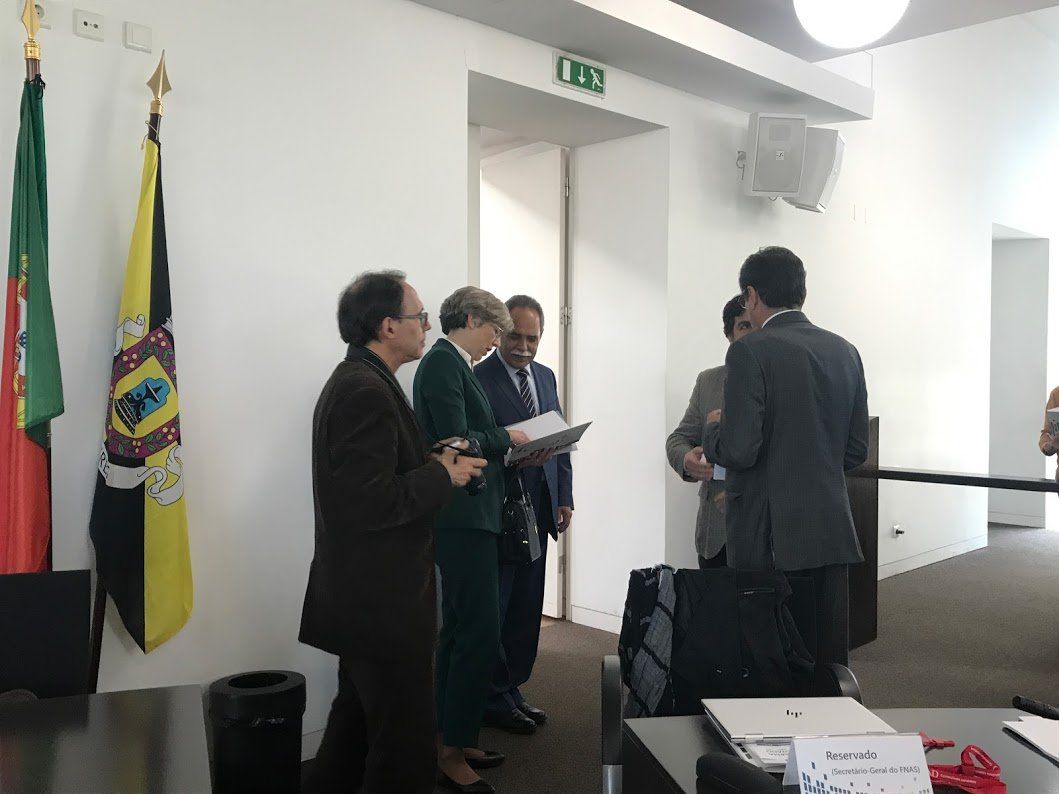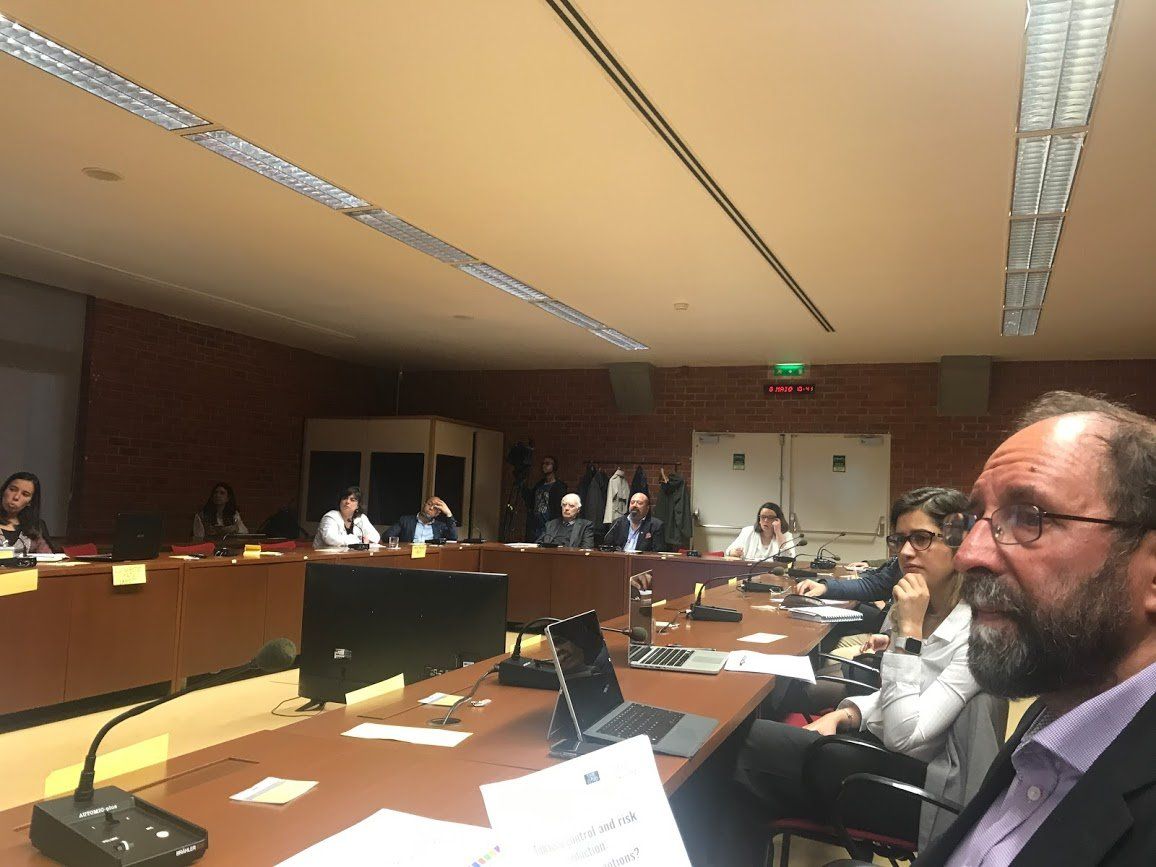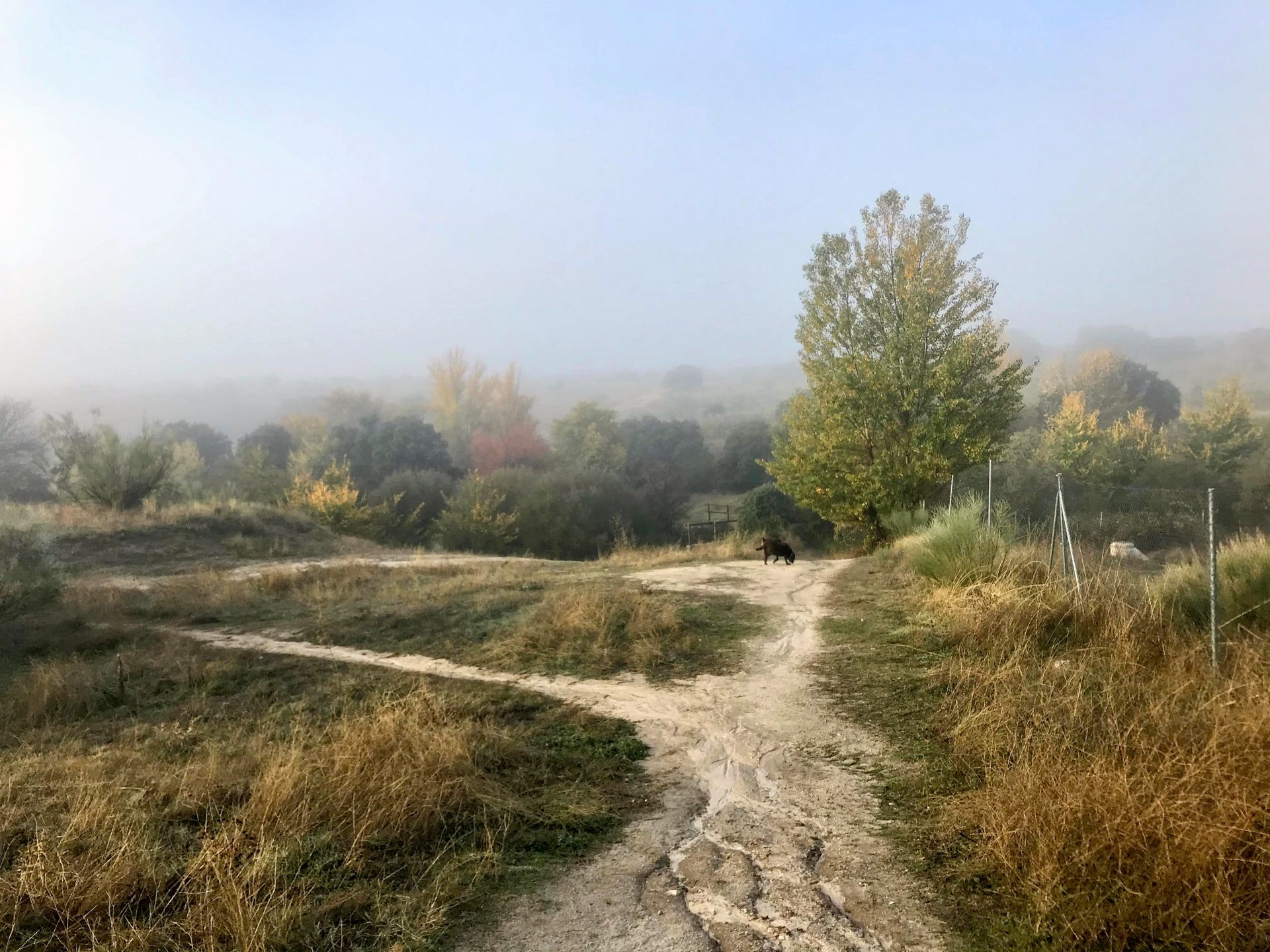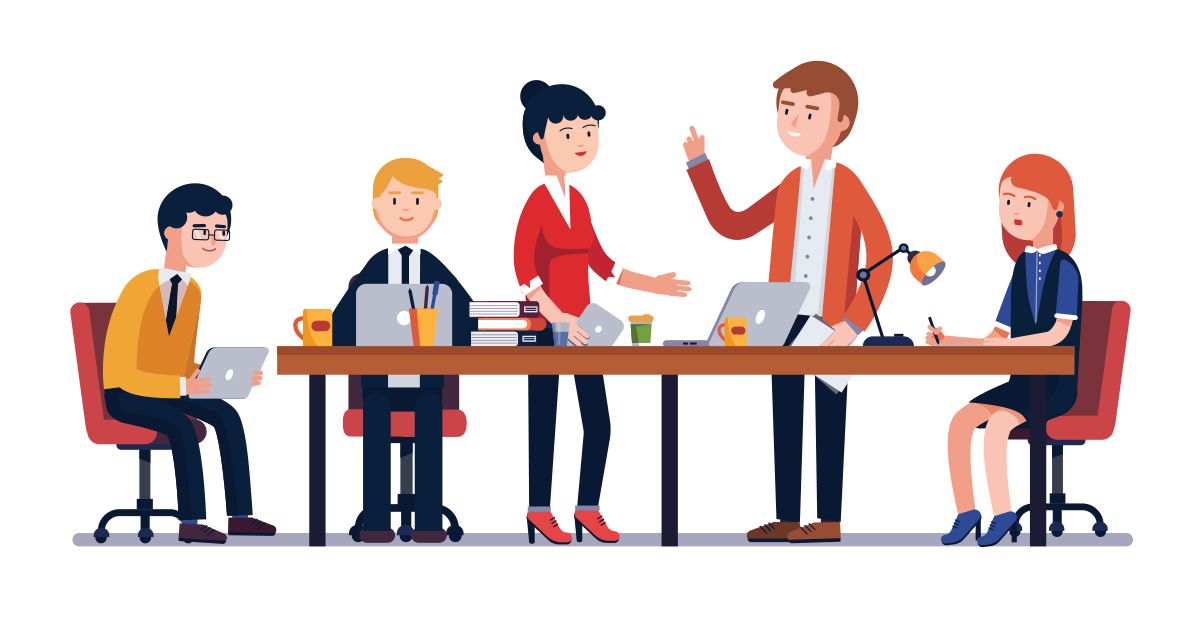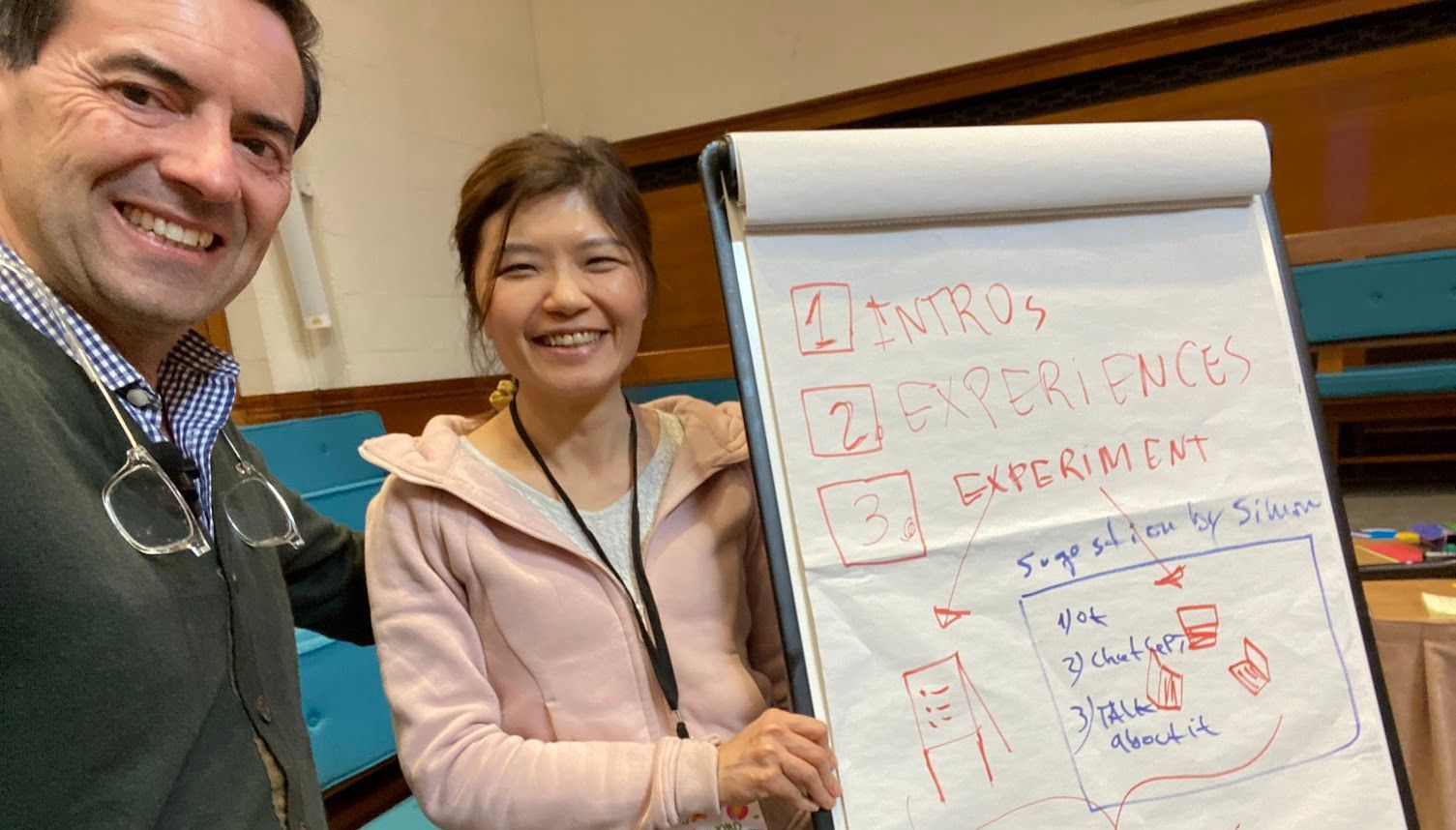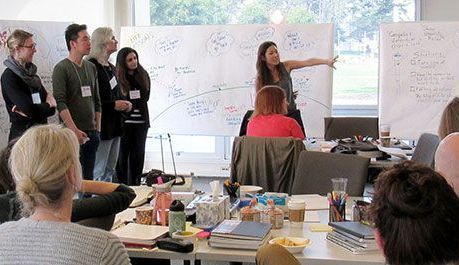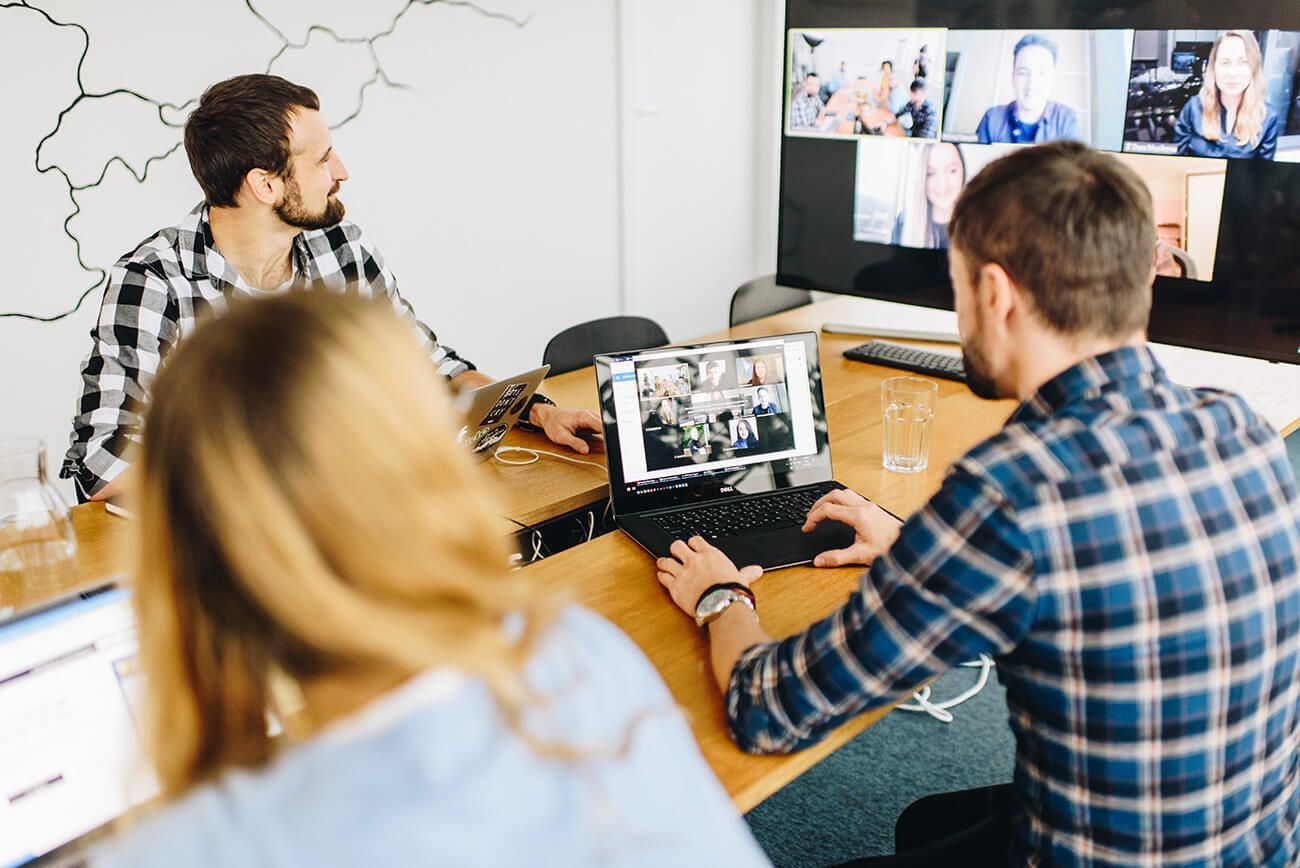The world has changed, not just the climate
Why dialog and collaboration matter now, more than ever
When I saw this picture on my social feed it struck a chord. I then saw Time magazine's cover page with Antonio Guterres - the UN's General Secretary - with water above the knees in a coastal area in the Pacific and it confirmed the fact that the world is massively being affected by global warming. The climate is changing but so the world.
I have recently read Hans Rosling's Factfulness
: "Ten Reasons We're Wrong About the World – and Why Things Are Better Than You Think" and started to become more optimistic. But I have now reasons to believe that the social and economic improvements we have witnessed in the past decades are not enough.
To overcome the challenges we are facing ahead humankind needs to evolve into a new era of global dialog and extreme collaboration, which is already emerging although with some hesitation, false starts and setbacks. This is an obvious case in certain public administrations and in international politics, with the contrast between Barack Obama's compared with Trump's administration. It is less evident in the corporate world, where businesses are learning rapidly how to adapt the Agile principles
not just to develop software code, but to create entirely new 'operating systems' for the organizations and new forms of leadership, that embody the values of participation and the methods of group facilitation. This revolution also extends to the new thinking behind the way products and services are now designed.
In what concerns public administration and healthcare, I have been busy this first semester with a number of challenging facilitation assignments in Portugal and I discovered a sharp contrast between what I have witnessed in two related areas of Public Health tasked to fight two licit drugs: Alcohol and Tobacco.
Why constructive dialog matters
Since 2008, Portugal has a space for governmental/ non-governmental organisations and economic operators to meet and debate about problems linked to harmful use of alcohol and its implication for public health – National Forum on Alcohol and Health (Fórum Nacional do Álcool e Saúde – FNAS) - where I had the privilege to be invited to design an intervention for the opening session
this year.
FNAS played an important advisory role in the design of a new law establishing the availability, sale and consumption of alcoholic beverages in public places and places open to the public in Portugal. The public administration body in charge - SICAD
- are also responsible for fighting the illicit drug addiction where Portugal is also considered to be a world reference.
By contrast, in what concerns Tobacco, the state of the art is quite different. In spite of fierce measures imposed by the WHO's Framework Convention on Tobacco Control Framework and the country's law, which includes a brand-new nicotine cessation program with subsidized treatments, cigarette consumption does not decreases as expected. Instead the consumption, which is more prevalent in men, is also raising among women. Philip Morris International
hired me to conduct a public debate - Panoramic Talks - on cessation versus harm reduction strategies. I have designed a Thought Leadership
session with guest experts and facilitated a subsequent public debate that produced interesting conclusions. However, the prevailing stereotypes about the tobacco industry as a force of evil still constitute barriers for an effective national dialog involving all relevant stakeholders, including the industry.
What are my reflections as a facilitator and why should you need one?
Of course, you would not expect that an IAF (TM) Certified Professional Facilitator will be telling you that a group facilitator is not needed, right? You are quite wrong, there are a number of circumstances where you should not rely on collaboration or even bother to have a group facilitator.
Rule #1:
If the participants do not accept the neutrality of the facilitator then there is a chance that the participation will be jeopardized. This mistrust can be overcome if you employ a certified member of the IAF abiding by strict ethical standards whose sole commitment must be to the group of participants being served, independently from the sponsor which has agreed upfront to abide by these standards.
Rule #2:
If the participants mistrust the proposer of dialog or the meeting owner is perceived to be biased in favoring one result rather than another, then the use of a group facilitator will be limited. In order to develop mutual trust among all participants a facilitator might spend time in one-on-one conversations trying to find the minimum common ground for a dialog to start. She or he, would become a conflict mediator in such instance.
Rule #3
The most effective conflict resolution strategy is joint problem-solving, this means that the facilitator in the capacity of conflict mediator must generate enough mutual trust for the belligerent parties to constructively confront each other and develop ways to solving the problem together.
Finally, I am able to reflect from my practice. In both the FNAS and in the Panoramic Talks cases, I believe I have delivered satisfying gatherings for all participants involved. Yet, in the latter case, I have not managed to convene the participants I wanted, to reflect the most diversified range of viewpoints from the start. The fact that portuguese medical societies have united to produce a public statement against the lower risk heated tobacco products and the fact that my fees where paid by a heated tobacco product manufacturer have proved to be problematic. Some guest speakers didn't attend and this was covered in an editorial in the
Nicotine Science & Policy by Harry Shapiro, our other guest speaker:
"The only sour note struck was the last minute absence of an eminent UK tobacco researcher who was to elaborate on the latest SNP research. However, the Tobacco Taliban did its work and he was warned off at a very senior level from attending if he didn’t want his funding and career jeopardised because PMI had some relatively minor role in the event and had two representatives in the room. This is just an appalling and outrageous state of affairs which smacks of the crushing of free speech associated with totalitarian regimes. While academic institutions fret and worry about whether to demolish historic statutes or possible income from slavery 300 years ago, I would suggest there are more contemporary issues of freedoms to be addressed. Worth noting the presence of PMI personnel didn’t seem to bother the Portuguese officials. But then again if you adopt a grown-up non-moralistic approach to a serious public health policy issue like drugs - why would it bother you?"
I suspect that the Portuguese authorities will be paying attention to the results of FNAS and start realising that there is no reason why the effectiveness of alcohol consumption policies, which include the industry, cannot be replicated in the tobacco consumption. Specially because there is now the risk that members of the public start to prosecute the authorities for not providing them with sufficient advice on safer alternatives to nicotine consumption - like
New Zealand or the
US are already doing - if they realise they have contracted cancer from smoking cigarettes that could be otherwise avoided.
About the author
Paul Nunesdea is the English pen name of Paulo Nunes de Abreu, Facilitator, Master of Ceremonies, Author, and Publisher of the book series - Architecting Collaboration, his LinkedIn profile can be reached here, or in Spanish here, or Portuguese here.
Paul is an IAF Certified Facilitator™ who designs and hosts events for clients ranging from large companies to municipalities and regional governments.
His academic background as a PhD researcher combined with +15 years of experience as a former CEO and entrepreneur has sharpened a client-serving mentality eager to co-create win-win solutions. As an NGO founder, he co-founded Digital Health Portugal and hosts the Health Regions Summit, the Health Data Forum among other initiatives.
As both a GroupMap™ and Howspace™ certified facilitator he co-founded the Digital Collaboration Academy with renowned facilitator Peter Seah united by the vision of creating and sustaining a new emerging field - Digital Facilitation - augmented by the core competencies of the IAF - International Association of Facilitators.
Follow Us
"Be brave enough to start conversations that matter and shift the direction of change for the better."
col.lab | collaboration laboratory is a spin-off from the book series " Architecting Collaboration " and our privacy policy can be consulted here
My Meeting Support is an event services brand by col.lab | collaboration laboratory







